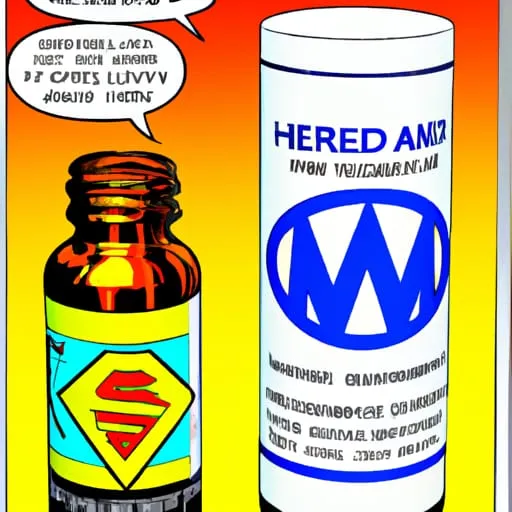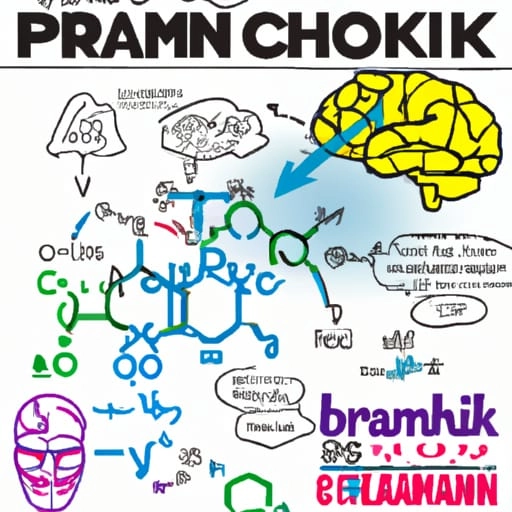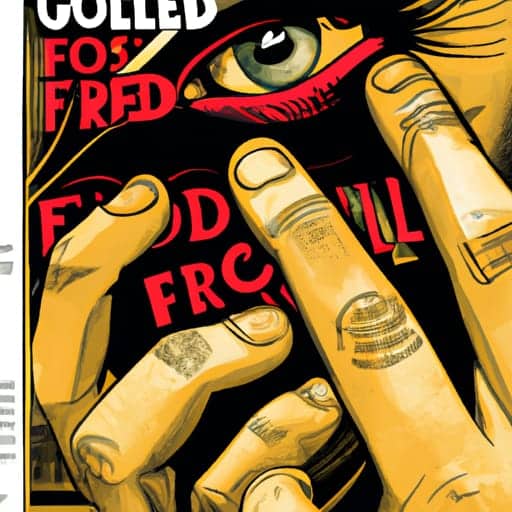Hint: It’s not an Illness

How Come There Is An Explosion In Adult ADHD?
There has been an explosion in the number of adults being diagnosed with ADHD. But I wonder: does this represent a huge amount of previously untreated suffering, or is it merely well people jumping on a bandwagon?
Controversial.
I work in England as a mental health nurse and my background is in the National Health Service (NHS) where I still work part time. I also have done work over the past year for a private company who specialize in the diagnosis and treatment of adult ADHD.
First of all, I do believe in neurodiversity. There are definitely people whose cognitive style differs from the majority, though the majority have inevitably come to to be considered the norm through weight of numbers.
But being the most common type of human, doesn’t mean being the best type of human. People who aren’t ‘normal’ aren’t necessarily disabled. They’re often just differently abled.
It seems to me that there are at least three subgroups in the human population. From observation, they fall into the following three types:
- People on the autistic spectrum. These people typically excel with details, and routine and systems. My pharmacist friends and my accountant show a cognitive style that suggests autism, even if not diagnosed, thank the Heavens for that because they need this skill set to do the jobs they so expertly do.
- Then there are psychopaths. Psychopaths get a bad press. Most people with psychopathic make-ups are not murderers, you may be surprised to learn. In fact they are are fearless and not at all squeamish. This is the kind of person who makes a good soldier and fire fighters and surgeon, and we need this group too.
- Finally, there are the people whose mind jumps around all the time, who have poor attention to detail, but can skip quickly from subject to subject and make rapid-fire decisions, without being troubled if their decisions are perfect. Good enough will do.
When I worked in Mental Health Crisis teams in risky and high-stake situations, this ability to make rapid decisions under pressure was just what I needed.
Time to confess: my mind and body work in a way that fits right into the ‘diagnosis’ of ADHD. But I have decided I’m okay, and I don’t want medication to make me so-called normal.
I do not regard ADHD as a disability (or autism, or psychopathy either). People are simply differently-abled. Each type is as good as the other, and better at the skills they specialize in than the other sub-groups.
We must note that that isn’t to say that a smaller subset of these neurodiverse groups have extreme versions of cognitive processing which do cause real problems for themselves and others. These are a minority and it is these people who may be helped by psychiatric treatment. But this is a long way from being most people with autism, psychopathy or attention deficit (so-called).
You should know that psychiatric diagnoses are based on clinical opinion. That is, there are no tests or imaging used to diagnose mental disorders. A diagnosis comes down to whether a person presents with features that meet a set of criteria in the diagnostic manuals.
In my opinion it is only when these features cause severe distress that we should consider them as an illness.
To repeat—for most ADHD/ASD/Psychopathic people these cognitive differences are helpful adaptations brought about through evolutionary processes.
Let’s get back to the point.
I worked both for the National Health Service and a private health company.
I have high regard for the systems and efficiency of the private ADHD company I worked for. So I am not just having a left-wing attack on private medical companies. For one thing, heir process seems far more receptive than that of the National Health Service. The thing that struck me first is that when I make a referral of a patient to a private mental health company, they always accept the referral and treat them as promptly as they can.
But because the demand for adult ADHD diagnosis has gone through the roof even the multiple private companies are struggling to meet demand for diagnoses and titration of treatment. There just aren’t enough trained people to do the assessment and titration of the huge numbers of people seeking a diagnosis of ADHD.
In contrast with referring to private health companies, my experience of referring to NHS mental health teams was (with notable exceptions) they would stonewall, decline, or refer me to their extensive ‘referral criteria’, which are mainly ‘criteria to avoid taking patients’. These referral (actually exclusion) criteria and rule out all sorts of people who suffer and need help. But that is a subject for a whole other post.
Therefore, I was initially delighted when I started referring to private companies for ADHD treatment and instead of delaying, deferring or refusing, they always said ‘yes!’ My referrals seemed blindingly accurate: everyone I referred got a diagnosis of ADHD.
Everyone.
I came ultimately to think about referring my bicycle or my grandmother (who is dead) to see whether they would diagnose them with ADHD. My hunch was they would.
It was always the case that if you had the money you could go to a private psychiatrist and get a diagnosis of your choice.
We observed patients seeking a diagnosis of Bipolar Disorder and bingo they got it. Within the NHS teams I worked in, we used to frown at these as ‘buy a diagnosis’. After all, it was a twenty minute interview with a doctor you’d never met before and whom you wouldn’t meet again, often these days via Zoom. You pay your money and you get your diagnosis. What you do with that diagnosis was up to you, but it could be very useful.
If you didn’t get your diagnosis of choice, you could go and see another psychiatrist. But these aren’t really diagnoses. They are just opinions.
I saw many cases of where Miss A goes to see Dr Z, and Dr Z confirms them with Schizophrenia. Some months later Miss A sees Dr X and she says they have Schizoaffective Disorder, a few more months and Dr Y diagnoses them with Bipolar Affective Disorder. Later they might get Cyclothymia, Emotionally Unstable Personality Disorder or even ADHD. It’s like the wheel on a fruit machine.
There is also a fashion in diagnoses. They come and go in popularity.
Once, there were lots of people with Schizophrenia. Now, hardly anyone that I come across is newly diagnosed with that. In fact they are close to getting rid of the diagnosis of Schizophrenia altogether — saying there is no such illness and never has been. Instead, it’s just psychosis. Psychosis is just a symptom like a fever or sweating. It can be caused by many different factors.
I remember that back in the day, everyone got diagnosed with Schizophrenia. Now I see patients who got this diagnosis forty years ago after seeing one psychiatrist. They’ve never had any trouble with it since, but they have Schizophrenia is on their medical record and they have been taking heavy duty antipsychotics every day since 1972. That’s not true actually, the drugs killed those people long since. Maybe some from 1982 are still alive.
In the years after the Schizophrenia craze, the next fashionable diagnosis was Schizoaffective Disorder. We had lots of people diagnosed with Schizoaffective Disorder in the 1990s, but I can’t remember seeing a new diagnosis of this in the past ten years.
After Schizoaffective Disorder, it was Bipolar Affective Disorder. This was about the time that various celebrities were coming out saying they had it. Coincidence? I don’t think so.
Now in the early 2020s, tons of people are seeking a diagnosis of ADHD. People come into my office every week because a friend has ADHD, or they saw someone on Instagram/Youtube/Tiktok who described their symtoms and they had it.
Funnily enough I saw a Tiktok of a young woman describing her symptoms to her puzzled male friend. They included lack of focus and hyperfocus, lack of energy and hyperactivity, low mood and high mood, low libido and high libido. In fact pretty much everything and its opposite. This can’t really be an illness. Yes, there is ADHD, but it doesn’t include everything and the kitchen sink.
It was weird that we thought it ended at 18. Once psychiatry didn’t believe adults could have ADHD. Now it does. There’s many to be made from diagnosing and treating it, so why not? Everybody needs to make a living.
Again, there is such a thing, but it is a natural neurovariant that appears in a good number of the population and it is in fact useful.
I remember about fifteen years ago, we had a young man out of prison who had got his ADHD diagnosis as an adult while he was locked up. We had to find a psychiatrist who would prescribe and a drug that was licensed in adults. We landed on atomoxetine (which was developed as an antidepressant, but didn’t work as such, so the manufacturers got it licensed for ADHD instead).
The history of the appearance of ADHD as an illness, seems to be that there were naughty boys. It was mostly boys. Their behaviour caused problems in school and in society.
Society makes incessant judgements about peoples’ behaviour. Possibly the most significant is: are they responsible for what they do? If so, they are bad and we punish, if not they are ill and we treat.
After thinking these hyperactive and troublesome boys were merely bad, we then decided they were ill. I get that. I also see that the motives were good ones. But you set a ball rolling and you don’t know where it will end.
We started medicating these mentally ill boys with amphetamine type drugs and they calmed down. There were clinical trials. Some may have been funded by the drug companies. These clinical trials proved stimulants calmed rowdy children. A whole new market for pharmaceutical companies and cash-strapped psychiatrists. Money in the bank. Nothing wrong with selling someone something that helps them though, eh?
We treat people diagnosed with ADHD with stimulants such as dexamfetamine and methylphenidate which are amphetamine type molecules.
In comparison with anti-depressants which help about 1/3 of people prescribed them, these medications get the thumbs up from nearly 97% of the people who take them. When I first encountered these, and then started prescribing them I thought: wow! We finally have a psychotropic drug which helps people and which they like taking.
As the months went by, I would see that people preferred the higher doses. We had to watch out for high blood pressure and weight loss and any heart issues, but by and large those were tolerable (in the short term anyway), and we could prescribe guanfacine as well to reduce blood pressure within normal limits.
ADHD sufferers would typically describe a dip at about 3pm and we would prescribe them a booster dose to carry them through until bedtime. Easily done with fantastic results!
Then I thought: hang on a minute. Don’t people actually buy stimulants such as cocaine and amphetamine for pleasure? Don’t the majority of people enjoy taking them. Don’t they give a lovely boost of feel-good, but then when come out of their system they get a come down. Wasn’t this what I was seeing in my patients?
So if we give our patients amphetamine and they enjoy taking it, feel boosted and then want a little bit more, is that really any surprise?
Is stimulant treatment really a cure for ADHD or actually people just enjoying recreational drugs?
And what is really going to happen to the hearts of all these people after twenty years on amphetamine? We simply don’t know.
When I worked in psychiatric liaison, I used to see people in hospital who’d had heart attacks in their early twenties from heavy stimulant use. I also noted those rock stars who died in their forties and fifties from heart attacks. That might well be related to habitual stimulant use.
So when the adults, and the children grow up after hammering their cardiovascular system with daily stimulant use for twenty years as treatment for their ADHD, what will happen to their hearts? Will we see a big jump in strokes?
But for now we don’t need to worry about these peoples’ hearts. Patients are happy on their stimulants and the doctors are happy prescribing them for their fee. The pharmaceutical companies keep selling them. Everyone’s happy.
I have left my ADHD work now.


